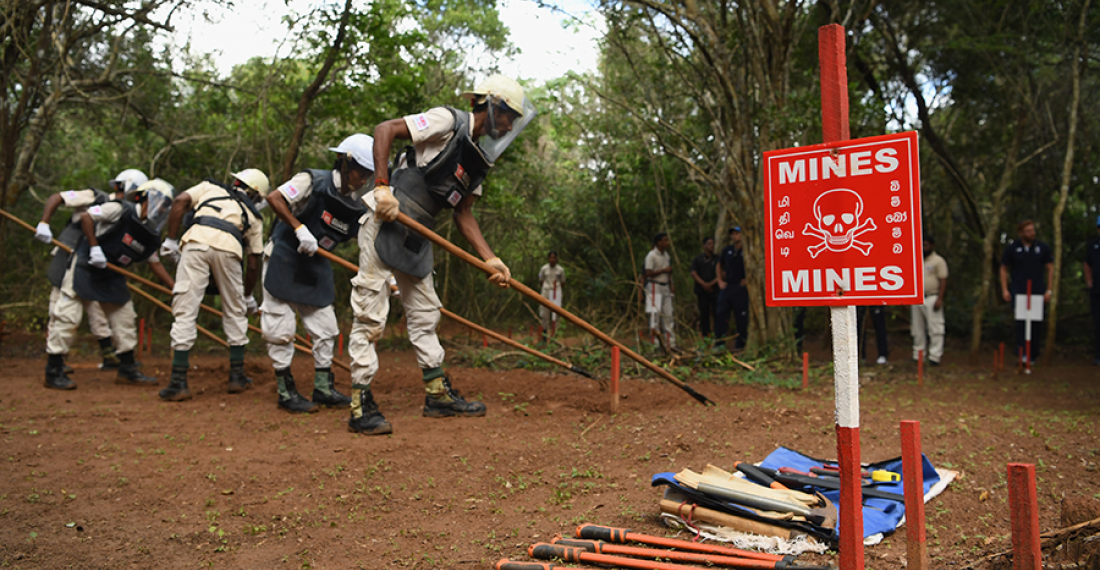On Thursday (10 February), the Parliament of Sri Lanka approved a law prohibiting the use, stockpiling, production and transfer of anti-personnel landmines. The law puts outlines provisions that will allow Sri Lanka to implement the Ottawa Landmine Treaty of 1997, to which the country acceded on 13 December 2017.
The law was passed without a vote after being introduced by Minister of Justice, Ali Sabry, on Wednesday (9 February).
In Sri Lanka, both government forces and separatist Tamil Tiger fighters were accused of using anti-personnel and anti-tank mines widely during Sri Lanka's quarter-century civil war, from 1983 to 2009, and claimed the lives of estimated 80,000-100,000 people. Sri Lanka’s government said in 2016 that 22,100 people were killed or injured by land mines or explosive remnants of the war.
The new law outlaws the production, use or transfer of landmines, except for training military and police personnel in mine detection, clearance, deactivation and destruction.
Violations can be penalized by up to ten years in prison and a fine of approximately 2,500 American dollars.
On 13 December 2017, Sri Lanka joined the Ottawa Convention of 1997, which bans anti-personnel landmines.







